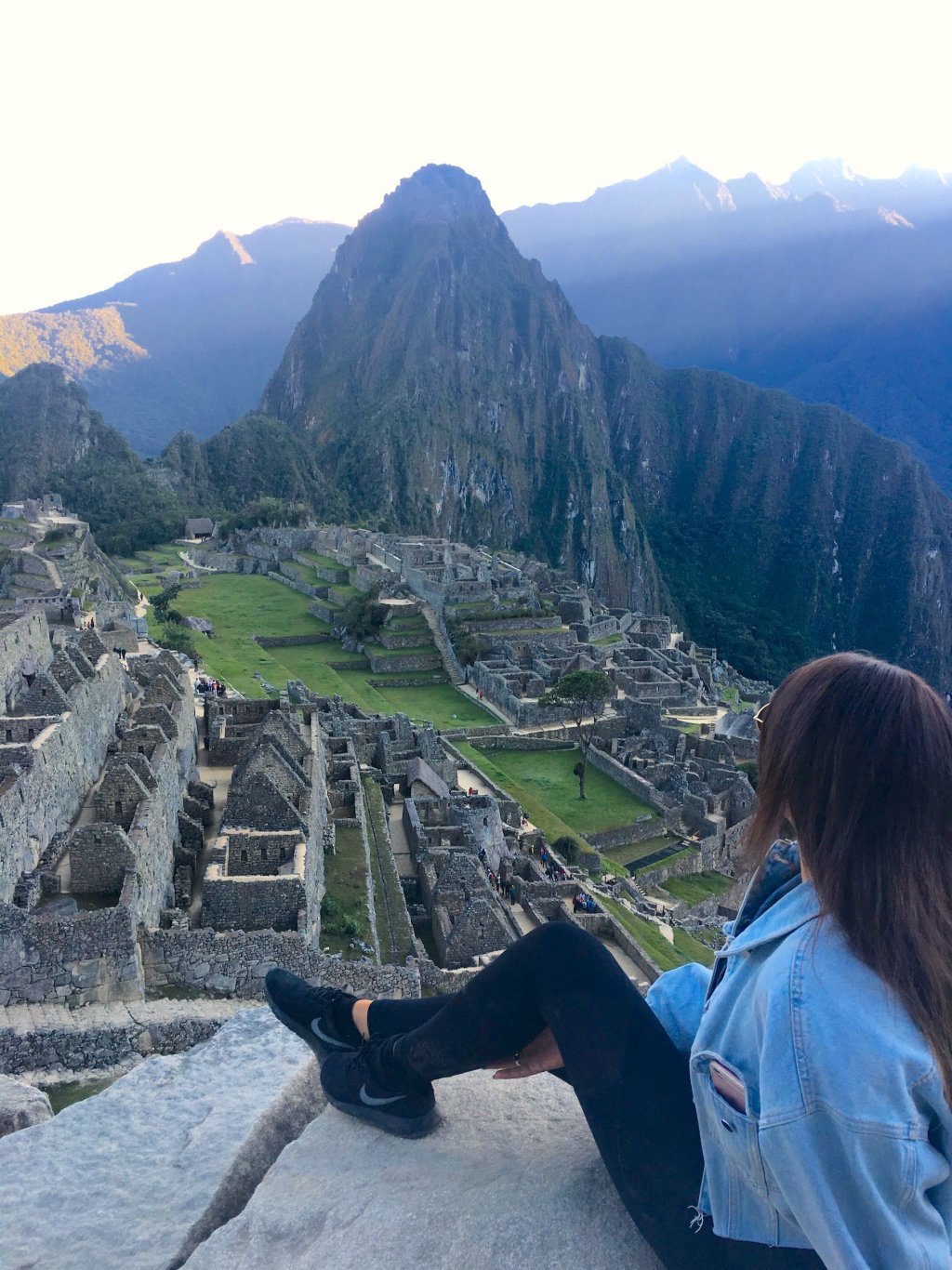TRUTHOUGHTS- SHOULD I TAKE A GAP YEAR?
PART 2!
With all of the controversy right now around A Level results (and almost everything else), and the fact that University courses are/will be done remotely through online courses and seminars, a lot of students are considering what to do next year. According to these articles, one in five students in the UK in May were changing their plans for next year and considering a gap year, and in the USA, a similar number of high school students were thinking of doing the same.
So, as it looks like there could be a lot of young adults deferring their places at uni and/or taking a year out to work or travel, we thought it would be a good idea to speak to some people about their Gap Years, what they did during them, and if they found them beneficial.
We thought it may be useful to our audience to release some “TruThoughts” opinion pieces around Gap Years, written by different members of the TruFam which we hope will give any young adults who are unsure what do do next year a bit of inspiration and maybe some reassurance that whilst all the info online about whether a Gap Year is good for your CV, or career, or life or whatever, each person is different and no matter what you do next year: uni, intern, work, travel, read, dance, sing, you can make it work for you and it can be beneficial to the rest of your life.

The first in the series was written by Gemma, the second in the series is written by a very smart young woman called Lily who is now studying at LSE. She discusses taking a gap year before uni, rather than travelling, she used the time to take a break from studying, earn some cash, to have fun, and spend quality time with friends and family. Like Gemma, she definitely recommends a gap year, but ultimately for different reasons, and not, she says to avoid an online learning experience.
EVEN IF I DON'T TRAVEL, SHOULD I TAKE A GAP YEAR?
Taking a gap year was the best thing I ever did. Maybe I should have travelled – but I didn’t feel the urge then, and that’s fine. As much as travel is undoubtedly beneficial and fun for many people, the islands will still be there, waiting for you when you’re ready.
I still reap the benefits of my at-home gap year, two years on. I even credit my academic performance today in some part to my time off. I worked in a local pub and saw my confidence undergo a drastic change. By the time I picked up my A-level results, I got the same feeling walking back into the school I’d left three months ago, as when you visit your primary school years later. The chairs were the same size, but my brain felt wired differently. I was more confident in speaking to my teachers: months before I’d often find it awkward to maintain eye contact. Surely, I can’t completely credit this to my job at the time, there’s something to be said about growing up quite literally, but I’m sure those over-the-bar conversations, meeting new colleagues, managing odd-ball customers, socially matured me in a way I would not have experienced if I put myself straight back in a classroom: my comfort zone since I was five.
It was not just my confidence that benefitted though. I cannot overstate the importance of having a break from the slog of exams and academics before university. I love learning, but my god, those ‘to what extent…’ questions can be soul-destroying. At my first lecture, it felt strange holding a pen for an hour. But it felt great. I had a new impetus to learn, I had even felt a tingling of desire for those damn questions as the year came to its end. University didn’t just feel like the continuation of the academic exercise wheel, my brain was completely ready and refreshed.
There’s something to be said about partying here too. It’s a fact that drinking is a big part of the culture at university in Britain. You can avoid it happily, but if you are the kind of person to get involved, it helps to have had a year or so of drinking under your belt, before you’re lulled into cheap shots in unfamiliar towns. Some say it’s a bonding experience, it’s not if you’re blacked out. That year of drinking with my school mates in my home town, stamping out the last of my teenage angst while I had no academic responsibility, made sure my drinking habits at university were healthy. I just wasn’t seduced by the high of booze and freedom in the same way I would have been if I was eighteen and never set foot in a bar or nightclub.
So, this brings me to the new university experience, once you get there. Numerous publications have reported that up to 20% of candidates in Britain are choosing a gap year to avoid the online learning experience. I’ve already established how important a gap year is – but it is a huge shame its likely from a fear of online learning. My feelings here rest on the assumption that libraries will eventually open, and seminars will continue in person, all socially distanced. This is the current plan for many of the universities that have already published their strategies.
I experienced online learning for two months. I was the first cohort to ever experience total online learning - I would have allowed for teething problems. Yet, my education remained completely intact. I felt disadvantaged in terms of the exam, but this was the product of a slap-dash approach, the circumstances in mid-March meant universities rushed to adapt. I would expect that to be remedied as senior leadership teams forensically evaluate how they are going to change in the long-term over the summer.
Some of my best essays were written having not attended lectures in person. It not only saved me the train fare to be there just for an hour or so, and gave me the time to pause, write, rewind, re-read when necessary. My notes were actually enhanced by this practice. Office hours with teachers were similarly effective. I have no qualms with asking the same questions, receiving the same attention and answers: the only difference being I’m essentially in my pyjamas. The only practice that must absolutely remain in-person is seminars, it is impossible to make friends over the Zoom interface. Without the opportunity to meet new people, you might as well sign up for the all-online Open University and avoid the fees. Most students would agree the 9k fee is largely reconciled by the life-long friendships and relationships you make. I should note here I lived at home during university, so I can’t comment on student accommodation: I didn’t feel like I was missing out there anyway. My point here, is that a partial shift to online learning isn’t depriving you of the full university experience, as long as seminars remain. The furore about Cambridge going digital for the entirety of next year, misses out that this is only for lectures. Any student will tell you, attendance for in-person lectures drops unbelievably by the second term anyway.
My take-away point is this: take a gap year, but not because lectures will be online.
Gap years, home or abroad, used well, give you the opportunity to mature and refresh.
As for online learning, universities have been establishing such systems for years, they will appropriately adapt and learning will continue unhindered. Ultimately, if you’re in a position to consider a gap year and you’ve got a place at university: whatever you chose to-do, you’re set out for an exciting next few years. It’s worth looking forward to, whenever you get there.Taking a gap year was the best thing I ever did. Maybe I should have travelled – but I didn’t feel the urge then, and that’s fine.
Once again, whatever you decide to do - the islands will still be there, waiting for you when you’re ready.
They will still be there after university, and they will still be there after coronavirus.
Don't Quit Your Daydream.

Wanna join the TruFam? For exclusive offers, latest travel news, advice and the TruStories from the road, simply fill in your details below and we'll do the rest.

 Facebook
Facebook X
X Email
Email
 Copy
Copy



